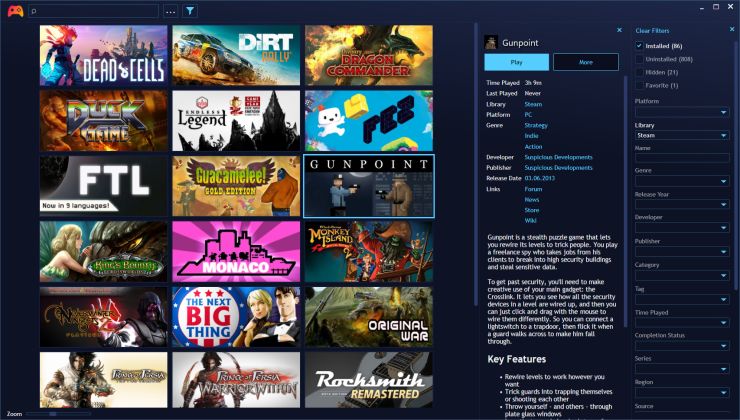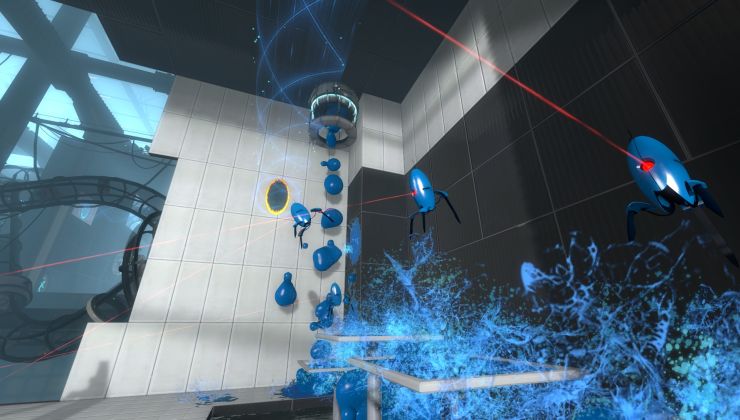Intel has confirmed some updates to their tech roadmap today and the good news is that Arc Graphics are on the way.
For notebooks, Intel Arc Alchemist will be arriving in the first quarter of this year. We already mostly knew this though, as they confirmed that before. At least now though, we're getting clearer info on standalone cards for desktops - which will be due out in Q2 (April - June). Intel think they will manage to ship "4 million" discrete GPUs in 2022 which would be across laptops, consumer desktops and workstations.
Additionally, Intel Arch Battlemage GPUs are scheduled for "2023-2024". Not only that, they've begun work on what they're calling Celestial, gearing up for the "ultra-enthusiast segment", so those will likely be cards directly facing off against something like an NVIDIA 3080 Ti / 3090 and those will be available "2024+".
This is going to be great. Not only will we finally see what another major GPU vendor can bring to the table for competition, but also more GPUs on the market as a whole. Oh, and since it's Intel, the drivers will be open source on Linux too of course which is fab.
Something else caught our eye in their press announcements — it's called "Project Endgame". Intel say it will allow users (and developers) "to access Intel Arc GPUs through a service for an always-accessible, low-latency computing experience" and that will come at some point later this year. The keyword being users, so it's for us regular folk - but for what? Well, cloud obviously and of course the dreaded Metaverse.
In other news, Intel recently announced plans to acquire Tower Semiconductor for $5.4 Billion. Intel say it "creates a globally diverse end-to-end foundry to help meet growing semiconductor demand and brings more value to customers across the nearly $100 billion addressable foundry market".
Can't say Intel is my favorite company but I definitely welcome more competition into the GPU space.
Me too. OTOH, I'm not too happy with them buying TSMC production. Not only that immediately creates a stupid bottleneck for Intel GPUs, but it actually undermine AMD's capability of making their stuff there too, because there is no way AMD can mach Intel's financial war chest on negotiations for TSMC production, thus making sure AMD will never pull a 7nm jump ahead of Intel again.
People may call BS on that, but to me it looks like the Athlon 64 all over again.
Can't say Intel is my favorite company, but I definitely welcome more competition into the GPU space.
Indeed. I really hope they are successful, and then I can't wait to see what AMD and NVIDIA will do.
Hopefully this also means GPU prices will eventually be lower. Right now it's pretty expensive.
If Intel really wants to be unique, they should be the first to have a proper GPU Control Panel on Linux. That would give them a massive heads up vs AMD which doesn't even have a control panel and NVIDIA's control panel is very basic and lacking.
Can't say Intel is my favorite company but I definitely welcome more competition into the GPU space.
Me too. OTOH, I'm not too happy with them buying TSMC production. Not only that immediately creates a stupid bottleneck for Intel GPUs, but it actually undermine AMD's capability of making their stuff there too, because there is no way AMD can mach Intel's financial war chest on negotiations for TSMC production, thus making sure AMD will never pull a 7nm jump ahead of Intel again.
People may call BS on that, but to me it looks like the Athlon 64 all over again.
TSMC is Taiwan Semiconductor, based, of course, in Taiwan. The article seems to say that Intel is buying Tower Semiconductor, based in Israel (which should also get them a majority stake in TPSCo, based in Japan). If I am mistaken or have missed something, please feel free to correct me.
Can't say Intel is my favorite company but I definitely welcome more competition into the GPU space.
Me too. OTOH, I'm not too happy with them buying TSMC production. Not only that immediately creates a stupid bottleneck for Intel GPUs, but it actually undermine AMD's capability of making their stuff there too, because there is no way AMD can mach Intel's financial war chest on negotiations for TSMC production, thus making sure AMD will never pull a 7nm jump ahead of Intel again.
People may call BS on that, but to me it looks like the Athlon 64 all over again.
TSMC is Taiwan Semiconductor, based, of course, in Taiwan. The article seems to say that Intel is buying Tower Semiconductor, based in Israel (which should also get them a majority stake in TPSCo, based in Japan). If I am mistaken or have missed something, please feel free to correct me.
AFAIK, Intel's discrete GPUs (at least initially) will come from TSMC. Also, they are giving a truckload of money for a big chunk of TSMC's future advanced node production. The only other one is Apple. Both can keep AMD out of the bleeding edge for a couple years, enough to break AMD's growth on key markets like laptops and server CPUs.
Can't say Intel is my favorite company but I definitely welcome more competition into the GPU space.
Me too. OTOH, I'm not too happy with them buying TSMC production. Not only that immediately creates a stupid bottleneck for Intel GPUs, but it actually undermine AMD's capability of making their stuff there too, because there is no way AMD can mach Intel's financial war chest on negotiations for TSMC production, thus making sure AMD will never pull a 7nm jump ahead of Intel again.
People may call BS on that, but to me it looks like the Athlon 64 all over again.
TSMC is Taiwan Semiconductor, based, of course, in Taiwan. The article seems to say that Intel is buying Tower Semiconductor, based in Israel (which should also get them a majority stake in TPSCo, based in Japan). If I am mistaken or have missed something, please feel free to correct me.
AFAIK, Intel's discrete GPUs (at least initially) will come from TSMC. Also, they are giving a truckload of money for a big chunk of TSMC's future advanced node production. The only other one is Apple. Both can keep AMD out of the bleeding edge for a couple years, enough to break AMD's growth on key markets like laptops and server CPUs.
Oh, I see; unrelated to the news in the article, you're concerned with them buying production time from TSMC. That makes sense now.
Last edited by CFWhitman on 17 Feb 2022 at 7:41 pm UTC
I think in the Linux space it will be hard to conquer AMD (and NV if you dare with proprietary deivers like me, which caused me more headache in the past 2 weeks than AMD in the past 3 years thanks to the 5.16.5 kernel release).
But any competitor is welcome, especially if they do feature mesa instead of some proprietary driver.
I still think my choice this time was good considering the needs I had to accomplish (I could not get my hands on a AMD card and it would have been hard to get it passively cooled just by heatpipes without water cooling, and having had my power supply go up in flames I needed a new PC - thanks Corsair by the way :-)). But next time I'd probably go the extra mile for a card I can run with Mesa.
Last edited by STiAT on 18 Feb 2022 at 12:26 am UTC










 How to set, change and reset your SteamOS / Steam Deck desktop sudo password
How to set, change and reset your SteamOS / Steam Deck desktop sudo password How to set up Decky Loader on Steam Deck / SteamOS for easy plugins
How to set up Decky Loader on Steam Deck / SteamOS for easy plugins
See more from me